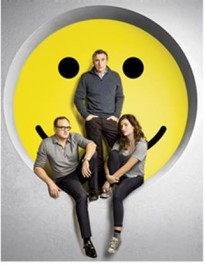 Somewhere in what seems another lifetime, I once toiled in the agency business in the Motor City. Advertising, business communications and public relations—the unholy trio of the written word—all intersected in the marketing of the automobile and its components from crate engines to smaller widgets.
Somewhere in what seems another lifetime, I once toiled in the agency business in the Motor City. Advertising, business communications and public relations—the unholy trio of the written word—all intersected in the marketing of the automobile and its components from crate engines to smaller widgets.
No three-martini lunches, thank you very much, but I witnessed several occasions when a coworker imbibed five and sometimes six boilermakers before heading back to the salt mines to sleep it off on the couch in his office. By 4 p.m., vendors would be lined up for after-work cocktails. On many occasions when I’d work late, it was not uncommon for the empty office next door to serve as a rutting station. Many marriages bit the dust as a result; new marriages followed, and they often met the same fate as the first attempts.
It wasn’t all booze and booty, however. Chicanery also was prevalent. Once I arrived at work to find the six principals of our division had cleaned out their respective offices, taped their keys to their desks, poached some account and administrative staff, and taken with them several lucrative clients. I also witnessed other account personnel assign high-paying freelance work to connected individuals who’d kick back a portion of the largesse to the assigning personnel.
The only thing television reflected of this experience up until the time I left the agency racket was Bewitched and, much later, Thirtysomething. Who could forget David White’s portrayal of the obsequious Larry Tate, the tuchus-smoocher of advertising agency McMann & Tate where Darrin Stevens worked, in Bewitched? Or David Clennon’s portrayal of the imperious Miles Drentell, the bane of Elliott Weston and Michael Steadman’s advertising existence in Thirtysomething? For the present, we’ll skip the ad agency where Kip and Henry worked on Bosom Buddies.
All this is preface to the “been there, seen that” vibe of vintage advertising saga Mad Men, now in its concluding season, and the debut episode of the more contemporary Happyish. Booze? Check! Agency takeovers? Check! Sex? Check! Heavy dollops of self-loathing and existential angst? Check and double-check!
Business mostly is good in both programs. Mad Men’s Don Draper can casually cut a $1 million check to a soon-to-be ex-wife, and Steve Coogan’s Thom Payne lives in swanky upper-middle class Woodstock digs in Happyish. Yet, Sterling-Cooper is falling prey to McCann-Erickson in Mad Men, and Thom’s agency has been usurped by millennial Swedes who ask absurd questions such as, and I paraphrase, “If color replaced black and white, what will replace color?” Anyone who’s ever sat through an advertising brainstorming session can relate.
However, it must be pointed out that Hollywood always has assumed an uneasy alliance with television in general (Network, for example) and advertising specifically (examples too numerous to address in this space). In most instances, the point of view has been condescending—those in television are depicted as shallow and those in advertising as harlots. Worse in these depictions, the advertisers know that they’re harlots and must drown their self-disgust in alcohol and/or promiscuity (thus far thankfully missing in Happyish, mostly because 44-year-old Thom can only rise to the occasion—with his wife, by the way, which is, by Hollywood standards, truly revolutionary—by using chemical stimulants).
The subtext here is that all advertising personnel are, to a man and woman, sellouts, frustrated creatives who by lack of talent, luck, or passion couldn’t make it in the world of “real art,” which, in the eyes of Hollywood, patronizingly means making movies. Never mind that television has generated the best visual cultural fare by far compared to the Hollywood film studios in the past decade or so, and television commercials, in many instances, have surpassed Hollywood’s long-form efforts to sell us laughs, thrills, and merchandising tie-ins. Don’t believe me? Check out the Wikipedia entry on recently deceased advertising genius Stan Freberg, for example, a man whose brilliant career is long overdue as a cinematic corrective to the “all advertisers are prostitutes” narrative.
All hope for a satisfied mind (in the words sung by Porter Wagner), I fear, is lost for Don Draper, but Thom Payne may discover that there’s no need for a creative individual to suffix happiness with “ish.” How refreshing would it be to see a truly happy creative man responsible for generating 60 seconds of advertising pleasure every week before going home to a wife and son he adores, rather than moping about in middle-aged despair and pretensions his genius isn’t recognized by the world at large? Alas, from my personal experience the advertising industry continues to revel in its own clichés, from Elia Kazan’s A Face in the Crowd onward, so I don’t see that happening anytime soon.

